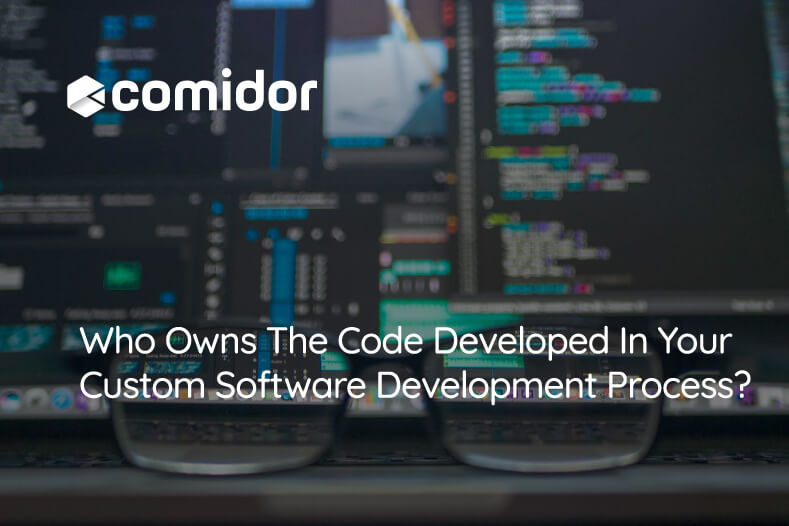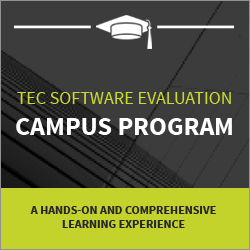Who Owns The Code Developed In Your Custom Software Development Process?
Blog: Comidor Blog
In today’s digital era, custom software development is a cornerstone for businesses seeking to innovate and differentiate themselves in the market. However, with the creation of bespoke software solutions comes a critical question: Who owns the code? This query is more than a matter of technicality; it’s about understanding the legal and practical implications of code ownership in the realm of custom software development.
This blog post aims to unravel the complexities of software ownership, offering insights into legal frameworks, common scenarios, best practices, and future trends, ensuring a clear understanding for developers, businesses, and legal professionals.
Understanding Software Ownership In Custom Development
Software ownership refers to the legal rights held over the code developed during a software project. In custom software development, these rights can significantly affect the ability to use, modify, distribute, or sell the software.
Contrary to common assumptions, the entity commissioning the software doesn’t automatically own all aspects of the developed software. Factors like the employment status of the developers, the use of third-party components, and the specifics of any contractual agreement play a pivotal role in determining ownership. Understanding these factors is essential for safeguarding intellectual property and leveraging software for business success.
Legal Frameworks Governing Code Ownership
Different countries have diverse laws governing software ownership, but they generally revolve around copyright and intellectual property rights. For example, in the United States, the copyright of software developed by an employee typically belongs to the employer. However, things get more complex with freelance or contract developers.
In such cases, ownership depends on the terms of the agreement between the developer and the client. Both parties must have a clear understanding of these legal frameworks to avoid disputes and ensure that the software serves its intended purpose without infringing on anyone’s rights.
Common Scenarios In Code Ownership
Scenarios like in-house development, outsourcing, and collaborative projects are common in custom software development. Each presents unique challenges in terms of code ownership:
- In-house Development: Generally, the employer owns the code developed by its employees. However, policies and contracts should explicitly state this to avoid ambiguity.
- Outsourcing: When outsourcing, ownership depends on the contract. Without a clear contract stating otherwise, the developer or the outsourcing firm might retain the ownership of the code.
- Collaborative Projects: In collaborations, especially with multiple stakeholders, ownership should be defined upfront, considering contributions from each party.
Best Practices For Protecting Your Code Ownership
To ensure clarity and protection of software ownership rights, adhering to certain best practices is crucial:
- Draft Clear Contracts: Contracts should explicitly state who owns the software, under what conditions, and how it can be used.
- Understand Open-Source Implications: Using open-source code can be tricky. It’s essential to understand the licenses attached to such code and how they affect your software.
- Seek Legal Advice: Consulting with legal experts in software and intellectual property law can prevent future legal troubles and ensure compliance with relevant laws.
Navigating Code Ownership In Open Source Contributions
Open-source projects have revolutionized the way software is developed, shared, and implemented across industries. However, they also bring a unique set of challenges and considerations regarding code ownership.
Understanding Open Source Licenses
Open source software is typically released under specific licenses that dictate how the software can be used, modified, and distributed. These licenses vary widely, from permissive licenses like MIT or Apache, which allow for broad freedom in using and modifying the code, to more restrictive ones like GNU General Public License (GPL), which require that any derivative works also be open source. Developers and businesses must understand the specific terms and obligations of these licenses to ensure compliance.
Contributing to Open Source Projects
When contributing to an open-source project, it’s important to understand that your contributions will be governed by the project’s license. This means your contributions might also need to be open-source, depending on the license. Before contributing, you should review the project’s contribution guidelines, which often include the legal implications of your contributions.
Using Open Source Code in Proprietary Software
Incorporating open-source code into proprietary software can be particularly challenging. If not managed carefully, it could inadvertently subject your proprietary code to open-source licensing conditions.
For example, using code under the GPL license in a proprietary product can require you to release your product’s source code under the same GPL license. To navigate this, conduct thorough license compatibility checks and consider consulting with legal experts specializing in intellectual property and software licensing.
Intellectual Property in Open Source
One common misconception is that open-source software is not subject to intellectual property rights. In reality, open-source software is copyrighted, and the copyright holders grant licensees certain rights under the terms of the open-source license. Contributors often retain the copyright to their contributions, but they grant broad rights to the community to use and distribute those contributions.
The Role Of Licenses And Contracts In Software Ownership
Understanding the intricate role of licenses and contracts is paramount in the realm of software development, particularly when it comes to establishing and protecting code ownership. This understanding is crucial for ensuring that all parties involved in the software development process are clear about their rights and responsibilities.
Different Types of Software Licenses
Software licenses are legal instruments that govern the use and distribution of software. When it comes to software licenses, there is a wide range of options available, each with its own unique set of rules and restrictions.
- Proprietary Licenses: These are the most restrictive types of licenses, often used by commercial software. They typically limit the user’s ability to modify, share, or redistribute the software.
- Open-Source Licenses: As discussed earlier, these licenses allow users to modify and share software, but come with various conditions. Understanding the differences between licenses like MIT, GPL, Apache, and others is crucial for compliance and effective use.
- Freeware and Shareware: These licenses allow users to access software for free. However, freeware does not necessarily mean that users can modify or redistribute the software, while shareware often comes with conditions, like the requirement to pay for the software after a trial period.
- Contracts in Software Development: In custom software development, especially when outsourcing or contracting third parties, contracts play a vital role in defining code ownership. These contracts should clearly articulate several key aspects:
Ownership of the Developed Software
The contract must specify who owns the final product. This can vary widely – sometimes the developer retains ownership, while in other cases, the client gains full rights to the software.
- Usage Rights: Even if the client does not own the software outright, the contract may grant them extensive usage rights.
- Intellectual Property Rights: The contract should delineate how intellectual property rights are handled, especially concerning any pre-existing code or third-party components used in the project.
- Confidentiality and Non-Disclosure Agreements: These clauses protect both parties’ trade secrets and proprietary information.
- Warranties and Indemnities: These protect against legal issues that may arise from the use of the software.
What Are the Legal Implications of Low-Code/No-Code Development Platforms on Intellectual Property and Copyright?
In the realm of software development, the adoption of Low-Code/No-Code solutions has become increasingly prevalent, with the Comidor platform standing out as a noteworthy player in this space. However, the following question logically comes up: How does the utilization of the Comidor platform impact Intellectual Property and Copyright regulations?
By examining the legal framework surrounding Comidor, this analysis aims to provide insights into the potential challenges and benefits associated with using such low-code/no-code platforms. From protecting proprietary innovations to ensuring compliance with copyright laws, this exploration navigates the intersection of technology and legalities, offering a comprehensive understanding of the landscape shaped by the Comidor platform in the context of Intellectual Property and Copyright.
When it comes to intellectual property in application and software development, the question of ownership depends on whether the code is newly created or copied from an existing application. If the code is original and created from scratch, the developer typically retains the rights to the intellectual property. On the other hand, if the code is copied, the original creator of the application may have a strong claim to their intellectual property rights. The complexity deepens when using low-code/no-code development platforms that often come with pre-built code libraries. These libraries can be subject to copyright, and the situation is further complicated by potential open-source licenses.
Generally speaking, in terms of intellectual property and copyright, it is important to note that developers are generally regarded as the owners of the code they create. However, low-code/no-code platform providers do retain the right to use the application and its source code for marketing and demonstration purposes.
Future Trends And Considerations In Software Development Ownership
As the landscape of technology continually evolves, so do the trends and considerations in software development and ownership. Staying ahead of these trends is crucial for businesses, developers, and legal professionals to adapt and thrive in the changing digital environment.
Emergence of AI and Machine Learning
The rise of Artificial Intelligence (AI) and Machine Learning (ML) in software development is reshaping notions of code ownership. AI-generated code presents new challenges, such as determining the ownership of code written by AI algorithms, especially when these algorithms are trained on publicly available data or code.
As AI becomes more integral to software development, the industry may need to reconsider traditional views on intellectual property and software ownership.
Blockchain and Smart Contracts
Blockchain technology and smart contracts are introducing new ways to manage and enforce software licenses and ownership rights. Smart contracts, which are self-executing contracts with the terms directly written into code, can provide more transparent, efficient, and secure ways to handle software licensing agreements. This technology could revolutionize how software ownership is defined and managed, particularly in decentralized applications.
Cloud Computing and SaaS Models
The shift towards cloud computing and Software as a Service (SaaS) models alters the traditional software ownership landscape. In these models, users typically pay for access to software hosted in the cloud rather than owning the software outright. This shift raises questions about data ownership, access rights, and control over software functionality, especially as more businesses rely on cloud-based solutions.
The Impact of Data Privacy Regulations
As global attention to data privacy intensifies, regulations like GDPR in Europe and CCPA in California are impacting software development. Developers need to be mindful of how these regulations affect software ownership, particularly when it comes to user data and the integration of privacy-by-design principles into software development.
Conclusion
Navigating the intricacies of software ownership in custom software development requires a blend of legal understanding, strategic foresight, and technological awareness. As the digital landscape continues to evolve, so too will the complexities surrounding software ownership. By staying informed and proactive, businesses, developers, and legal professionals can effectively manage these challenges, ensuring that their software endeavors are legally compliant and strategically sound.
The post Who Owns The Code Developed In Your Custom Software Development Process? appeared first on Comidor Low-code Automation Platform.
Leave a Comment
You must be logged in to post a comment.








